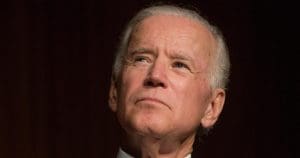Voters in Four States to Vote on Recreational Marijuana
Legalizing recreational marijuana is a hot topic in many states where the state budgets are in disarray because of the coronavirus pandemic and new revenue sources are being sought.
7 min readStay informed with quick and accessible analysis of today's top tax policy topics. Read Tax Foundation's Tax Policy Blog for insight from our experts on tax policies across the U.S. and abroad.
To find our most recent research papers and data, click the links below.

Legalizing recreational marijuana is a hot topic in many states where the state budgets are in disarray because of the coronavirus pandemic and new revenue sources are being sought.
7 min read
A recent OECD report on 2020 tax reforms reveals an increase in the number of environmentally-related tax policies, including gas taxes, carbon taxes, and taxes on electricity consumption.
5 min read
The design and implementation of a global minimum tax is not simple and straightforward. There are dozens of challenging issues that policymakers will need to consider. So, when it comes to the way the minimum tax treats new investment, it seems clear that incorporating full expensing into the design would have significant benefits.
6 min read
Sweden’s 2021 budget outlines an aggressive plan to both cut income taxes in a permanent manner alongside multiple other tax cuts and spending increases
3 min read
While there are legitimate reasons for increasing and levying excise taxes, legislatures should proceed with caution in the aftermath of the pandemic. Importantly, revenue from increased excise taxes should generally be allocated to spending related to the negative externalities as that revenue is too volatile and unreliable to rely on for long-term budget priorities.
3 min read
The House Republican Study Committee released a proposal, “Reclaiming the American Dream,” which includes 118 policy recommendations to address education, labor, and welfare policy with the aim of expanding opportunity, liberty, and free enterprise for all Americans.
7 min read
Joe Biden recently released a piece reviewing his tax proposals, contrasting them with President Donald Trump’s tax ideas. A major theme within this piece can be summarized in the title: “A Tale of Two Tax Policies: Trump Rewards Wealth, Biden Rewards Work.”
4 min read
A recent OECD report reveals a tendency towards higher property taxes, often in the form of base broadening, tax rate increases, or both.
5 min read
Even during a crisis when budgets are squeezed, policymakers should put their efforts into serious reforms of existing income and consumption taxes rather than leaving good tax policy behind for an excise state of mind.
6 min read
As the NYSE prepares to conduct a test of their server capacity elsewhere, New Jersey lawmakers may be forced to rethink the viability of their financial transaction tax proposal.
4 min read
What does the Senate Republican coronavirus package do? Are there better ways of providing short-run relief without making the tax code more complicated?
6 min read
If the goal of the Biden campaign is to bring new investment and jobs to the U.S., it is doubtful that these new tax rules will contribute to that goal.
4 min read

A more efficient property tax system in Greece is a better objective than just focusing on incentives for foreigners to change their tax residence.
4 min read
One of Biden’s tax proposals that has gotten little attention is a change that would shift the benefits of tax deferral in traditional retirement accounts toward lower- and middle-income earners. The plan would reduce the tax benefit for those earning above $80,250 but under $400,000, violating Biden’s tax pledge to not raise taxes on earners below the $400,000 threshold.
5 min read
Broad themes of the president’s agenda include providing tax relief to individuals and tax credits to businesses that engage in desired activities, while the status of expiring TCJA provisions and tariffs seems uncertain.
4 min read
Biden’s tax vision is twofold: higher taxes on high-income earners and businesses paired with more generous provisions for specific activities and households.
4 min read
One under-discussed part of the CARES Act, passed in March to provide economic relief during the COVID-19 epidemic, is a correction to a drafting error in the Tax Cuts and Jobs Act of 2017, often known as the “retail glitch.”
3 min read

In recent months, several countries have introduced accelerated depreciation as a measure to incentivize private investment, including Australia, Austria, Germany, and New Zealand. There are various ways of how this policy has been implemented in the respective countries, largely depending on the existing standard depreciation schedules.
5 min read